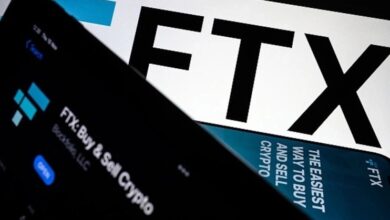E-Banking and the Rise and Rise of Bank Fraud

“I want to distinguish between two common ways people lose their bank savings. The first is through scam and involves the victim transferring money to a scammer usually on a false pretense”.
January 9 is a day Ms. Chiamaka Agim will not forget in a hurry. At around 8:43 pm, the Lagos-based customer of Zenith Bank began to receive alerts of bank transactions she did not initiate. Unknown to her, fraudsters had somehow gained access to her Zenith account and were busy transferring out her money to strange UBA and Access Bank accounts. By the time the fraudsters were done, Agim had lost nearly four million naira, her entire lifesaving. Thus began a nightmare Agim would prefer was just a dream. But it is real and she is just one of the tens of thousands of Nigerians who lose their bank savings to fraudsters and hackers.
Despite Agim’s immediate notification of her bank, her persistent follow-up with them, and her extensive deployment of social media in getting the attention of regulators and others that could help her, it is unlikely Zenith will be able to get her money back to her. The bank has insisted that it is not its responsibility to make her whole as the transactions in question were initiated with Agim’s own registered device and PIN. There was no way the bank could have known the transactions were not authorised by the account owner, Zenith argues. The bank added that it has been able to get Access Bank to salvage 20% of the money and that was the amount Agim is likely to get back but only with a court order that will probably cost her more money.
Also Read: Don’t Lose Your Money to Mr. Tunez: 10 Ways to Safeguard Your Debit Card
The case of Chiamaka Agim is not by any means unique. According to a report by Punch newspaper, Nigerian banks are reporting billions of naira in loss as a result of fraud. For example, in 2021, GTB reported 15,204 cases of fraud and forgeries with a value of N1.2 Billion. Access Bank in the same year said it recorded 17,697 cases of fraud, over 95% of which were electronic transactions. According to a survey conducted by Agusto & Co in 2022, 59 percent of bank customers they sampled claimed to have been affected by fraud. While this figure might be hard to believe, what is noteworthy is that a vast majority of those sampled said their bank accounts were compromised through electronic banking platforms, including but not limited to unauthorised access to accounts through USSD, phishing emails, and data breaches.
For the last decade, electronic banking, especially mobile phone-enabled banking, has continued to grow in Nigeria at a breakneck speed. The data from the Nigeria Inter-Bank Settlement System (NIBSS) shows a significant increase in mobile banking transactions within Nigeria. Specifically, in the first three quarters of 2022, there was a 153% Year on Year growth in transactions, rising from N5.07 trillion in the first three quarters of 2021 to N12.8 trillion in the comparable period of 2022. Thanks to its unbeatable convenience and speed of service, Nigerians are embracing modern banking. This, however, increases the risk of fraud that comes with digital transactions.
One would have thought that the myriad of identity schemes including the Bank Verification Number (BVN) and the National Identity Number (NIN) would make fraudulent transactions near impossible to get away with. As all accounts are now linked with BVN and NIN, it is difficult to understand how fraudsters and hackers are getting away with transferring money out of victims’ accounts into their accounts. In the case of Ms Agim, UBA, one of the recipient banks of the stolen money, claimed that the profile of the recipient account does not seem like that of a fraudster.
But why does this matter? Unless the account owner can explain what services he/she rendered to Agim in exchange for the money, it should not be difficult to claw back the money and return it to the rightful owners. Even if the account receiving the funds is also compromised and does not indeed belong to the actual hackers, it should still be possible to identify who ultimately benefited from the stolen money. This includes determining who withdrew the funds from ATMs or POS terminals, as well as the debit cards used.
Also Read: E-Banking Fraud Rises by 186%, Access Bank Launches Awareness Campaign
I want to distinguish between two common ways people lose their bank savings. The first is through scam and involves the victim transferring money to a scammer usually on a false pretense. The second is when victims’ accounts are compromised by thieves who then proceed to drain the account. I am not sure banks can be held responsible for the former case, but in the latter one, I believe it is the responsibility of the banks, their insurers, and regulators to figure out a way to make victims whole. It is also their responsibility to limit vulnerabilities even if it will slightly impact the ease of using their products.
Banks’ campaigns to their customers on protecting their online banking profile and tools should be stepped up, to help limit scams and hacking. A better customer profile system should be put in place to flag suspicious transactions before they are consummated. Banks must also work with law enforcement to ensure that thieves don’t get away with fleecing their customers.
The Central Bank of Nigeria especially has to sit up and ensure the BVN it spent years forcing on Nigerians is used to protect bank customers and root out fraud. E-banking is a good thing that has not only made life for customers but also become a powerhouse of the Nigerian economy, but it has become imperative to stem the tide of fraud that is ruining the experience for users.







